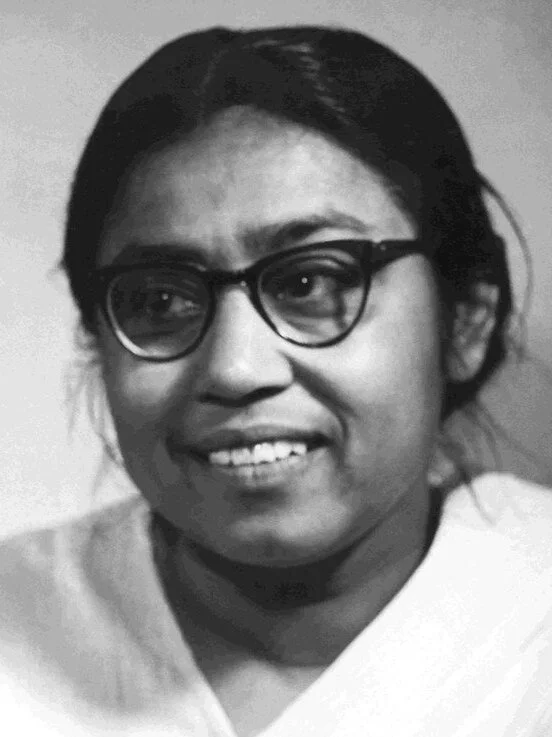Sucheta Kripalani
"One point which everybody felt -- educated, uneducated, people of all levels who came in touch with him -- was his (Gandhi's) abounding love. Everybody felt that he is my own and we mean to him something, that any little thing of ours is precious to him. Every human being was precious to him and there was a big horizon of love in which he kept people in; that was his number one quality. Then he was also a teacher. We have had so many outstanding leaders in the last generation, but I don't think anybody else had the quality to develop the best qualities in you. He assessed you, gave you the kind of work you were capable of and guided you all the time. That is why he was able to build up such a big cadre of workers."
Sucheta Kripalani (1908-1974)
From an interview in "Understanding Gandhi: Gandhians in Conversation with Fred Blum," edited by Usha Thakkar and Jayshree Mehta, p 463, Sage Publications, 2011.
Born in Punjab in 1908, Sucheta Kripalani was an activist and freedom fighter during India’s independence movement. Although she was known for her iron will and steadfast leadership capabilities, Kripalani confesses to being a shy and self-conscious child. It was only after witnessing horrific events carried out by the British occupation, most notably, the Jallianwala Bagh massacre, when she developed the same passion for freedom and equality as Mahatma Gandhi, and found her voice. Kripalani studied at Indraprastha College and Punjab University before becoming a professor of constitutional history at Banaras Hindu University. Kripalani garnered a public image when she joined the “Quit India” movement and began working closely with Mahatma Gandhi during partition riots. When India gained independence, Kripalani was one of a very few women elected to the Constituent Assembly of India, and was placed on the subcommittee responsible for drafting the Indian constitution. In October of 1963, Kripalani became the first woman to serve as the Chief Minister of India’s largest province, Uttar Pradesh. Although Kripalani passed away in 1974, she is still revered in India as a symbol of female empowerment.
